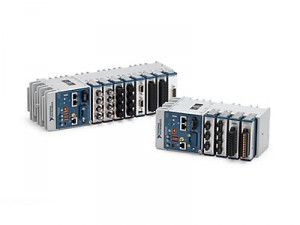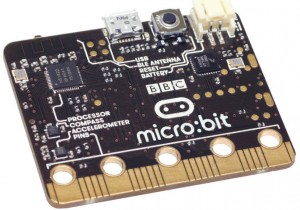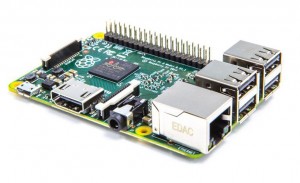ZHENGZHOU, China—An employee at Foxconn’s electronics manufacturing operation here committed suicide by jumping off a building at the complex. The death comes after Foxconn had worked to improve labor conditions following a series of suicides in 2010 and 2011, mostly at the company’s Shenzhen factory.
Another Foxconn Worker Commits Suicide
ZHENGZHOU, China—An employee at Foxconn’s electronics manufacturing operation here committed suicide by jumping off a building at the complex. The death comes after Foxconn had worked to improve labor conditions following a series of suicides in 2010 and 2011, mostly at the company’s Shenzhen factory.
Another Foxconn Worker Commits Suicide
ZHENGZHOU, China—An employee at Foxconn’s electronics manufacturing operation here committed suicide by jumping off a building at the complex. The death comes after Foxconn had worked to improve labor conditions following a series of suicides in 2010 and 2011, mostly at the company’s Shenzhen factory.
Another Foxconn Worker Commits Suicide
ZHENGZHOU, China—An employee at Foxconn’s electronics manufacturing operation here committed suicide by jumping off a building at the complex. The death comes after Foxconn had worked to improve labor conditions following a series of suicides in 2010 and 2011, mostly at the company’s Shenzhen factory.
NIWeek: Big data challenge gets Intel quad-core processing
 NI is addressing the big data management challenge with its latest 4- and 8-slot CompactDAQ controllers announced at NIWeek in Austin, Texas this week.
NI is addressing the big data management challenge with its latest 4- and 8-slot CompactDAQ controllers announced at NIWeek in Austin, Texas this week.
NI has significantly increased the processing capability in the data acquisition hardware with quad-core processors. There is also a new 14-slot USB 3.0 CompactDAQ Chassis,
It is all about more effectively processing data at the point of acquisition. Software-based measuremtn systems need to be smarter, says NI.
The 4- and 8-slot CompactDAQ controllers feature Intel Atom quad-core 1.91 GHz E3845 processors. There are more than 60 sensor-specific I/O modules with integrated signal conditioning, and two USB and Gigabit Ethernet ports.
The controllers can run either Windows Embedded 7 or NI Linux Real-Time, and include 32 GB of nonvolatile storage and removable SD storage to create smarter data logging and embedded monitoring applications.
The USB 3.0 CompactDAQ Chassis provides both increased data bandwidth with a 250Mbyte/s data transfer rate for data acquisition and 14-slot expansion capacity.
For managing this increased level of data acquisition, NI is releasing its DIAdem 2015 data analysis tool as 64-bit software. This is supported by DataFinder Server Edition 2015 which can find and manage data in the cloud.
NIWeek: Big data challenge gets Intel quad-core processing
 NI is addressing the big data management challenge with its latest 4- and 8-slot CompactDAQ controllers announced at NIWeek in Austin, Texas this week.
NI is addressing the big data management challenge with its latest 4- and 8-slot CompactDAQ controllers announced at NIWeek in Austin, Texas this week.
NI has significantly increased the processing capability in the data acquisition hardware with quad-core processors. There is also a new 14-slot USB 3.0 CompactDAQ Chassis,
It is all about more effectively processing data at the point of acquisition. Software-based measuremtn systems need to be smarter, says NI.
The 4- and 8-slot CompactDAQ controllers feature Intel Atom quad-core 1.91 GHz E3845 processors. There are more than 60 sensor-specific I/O modules with integrated signal conditioning, and two USB and Gigabit Ethernet ports.
The controllers can run either Windows Embedded 7 or NI Linux Real-Time, and include 32 GB of nonvolatile storage and removable SD storage to create smarter data logging and embedded monitoring applications.
The USB 3.0 CompactDAQ Chassis provides both increased data bandwidth with a 250Mbyte/s data transfer rate for data acquisition and 14-slot expansion capacity.
For managing this increased level of data acquisition, NI is releasing its DIAdem 2015 data analysis tool as 64-bit software. This is supported by DataFinder Server Edition 2015 which can find and manage data in the cloud.
Qualcomm buys Ikanos
 Qualcomm is to buy Ikanos for $47 million to expand its broadband and modem portfolio for fixed line consumer business.
Qualcomm is to buy Ikanos for $47 million to expand its broadband and modem portfolio for fixed line consumer business.
It will help provide, says Qualcomm: ‘a central hub for Internet of Everything (IoE) enabled devices, services and 3G/LTE small cells.’
“Qualcomm Atheros has always viewed the home gateway as the enabler for consumers to not only access the Internet for browsing and downloading content and video streaming, but also as the hub of the Internet in the home for a variety of reliable and high quality services,” says Qualcomm’s Rahul Patel, “the combination of Qualcomm Atheros’ broad home gateway IP portfolio, including Wi-Fi, powerline, small cell, and Ethernet switch technologies, and Ikanos’ advanced wired modem technology, is designed to create a complete solution for a wide range of home gateway products to better serve the carrier segment.”
What Ikanos brings to Qualcomm is: A/VDSL2 and G.fast modem technology and chipsets for consumer premises equipment (CPE) and central office (CO) infrastructure; multi-mode gateway processor and accelerator technology for fibre, LTE, Ethernet and hybrid-copper applications; Ikanos’ inSIGHT software for remote diagnosis, management and optimisation of the broadband connection and quality-of-service, and VoIP integrated access devices and bridges.
Qualcomm buys Ikanos
 Qualcomm is to buy Ikanos for $47 million to expand its broadband and modem portfolio for fixed line consumer business.
Qualcomm is to buy Ikanos for $47 million to expand its broadband and modem portfolio for fixed line consumer business.
It will help provide, says Qualcomm: ‘a central hub for Internet of Everything (IoE) enabled devices, services and 3G/LTE small cells.’
“Qualcomm Atheros has always viewed the home gateway as the enabler for consumers to not only access the Internet for browsing and downloading content and video streaming, but also as the hub of the Internet in the home for a variety of reliable and high quality services,” says Qualcomm’s Rahul Patel, “the combination of Qualcomm Atheros’ broad home gateway IP portfolio, including Wi-Fi, powerline, small cell, and Ethernet switch technologies, and Ikanos’ advanced wired modem technology, is designed to create a complete solution for a wide range of home gateway products to better serve the carrier segment.”
What Ikanos brings to Qualcomm is: A/VDSL2 and G.fast modem technology and chipsets for consumer premises equipment (CPE) and central office (CO) infrastructure; multi-mode gateway processor and accelerator technology for fibre, LTE, Ethernet and hybrid-copper applications; Ikanos’ inSIGHT software for remote diagnosis, management and optimisation of the broadband connection and quality-of-service, and VoIP integrated access devices and bridges.
Interview: Manufacturing a million Micro:bits
An interview with Richard Curtin – senior director, strategic alliance, at element14 – the man responsible for manufacturing a million BBC Micro:bits, within a few months.
The BBC Micro:bit initiative involves more than twenty partners – including ARM, Microsoft, Freescale, Nordic Semiconductor, Samsung – and the company responsible for sourcing components and managing the manufacturing is element14.
For those not aware of the project, which launched last month, it involves about one million of the programmable devices being given free to all Year 7 children in the UK (11- to 12-year-olds) by late October (an online simulator, to help teachers get to grips with it, will be available in September).
Element14 became involved in the project – on a not-for-profit basis – as a result of its existing relationships with many of the partners, Curtin told Electronics Weekly.
“Our previous engagement with ARM, Microsoft and Samsung meant they knew our capabilities and that they’d fit well with the requirements of the [strategic alliance] group.”
Another important factor was its experience of design and manufacturing for the Raspberry Pi, he said. Both projects – and others, such as its work with the BeagleBone Black – draw on its earlier investment in the third-party manufacturing and design centres of Embest, in Shenzhen and Avid, in Ohio.
In an update on the progress of Micro:bit manufacturing he said things were still on schedule. It seems the Micro:bit is on course to hit its milestones. “Everything is going to plan, from a supply chain and capacity planning perspective.” He was quietly confident, he said.
What is involved in the manufacturing process?
Curtin said a team is deployed inside element14 to drive the Micro:bit project, with engineers in the UK also providing support to funnel the design to the related team in China, at Embest. This has made final optimisations of the design, within the specs, in terms of volume manufacturing and costs.
Element14 is basically providing value-added engineering around the final optimisation of the design, he said.
Curtin outlined the tight parameters for delivering the BBC Micro:bit, in terms of agreeing designs and cost constraints. Not only were a large number of software and hardware partners involved, but the aim was to deliver the Micro:bits in October, within a few months. Also there was no flexibility on cost – funding was capped to the companies’ existing contributions, made from their corporate or social responsibility budgets.
All the parties involved have worked on a not-for-profit basis, but Curtin also pointed out that all the Nordic Semiconductor Bluetooth chips and Freescale MCUs were given free by their companies, a considerable outlay in itself.
Basically, he said, element14 was a conduit between the diverse range of partners and the manufacturing teams in China, from the design optimisation carried out by Embest to the contract manufacturer IONote Electronics.
Final design lock down
Some examples where the final design has had to be tweaked and optimised? Curtin mentioned choices around the 25-LED grid on the Micro:bit, where there has been a trade-off between high-brightness and high-cost LEDs against more standard, cheaper alternatives.
Another was the battery-holder, where pricing issues also had to accommodate meeting the requirements of legislation and electronics directives.
“The very final design is now locked down”, he said, “and we’ve moved into volume production. The supply chain is kicked off. There will be no material changes to the spec between now and October.”
Note that we are talking about the initial version of the device. The BBC has plans to license Micro:bit technology to make it commercially available to the wider public. Changes to the spec are like to happen then, as lessons are learned and technologies evolve.
Micro:bit specific issues
What are the manufacturing challenges specific to the Micro:bit, Electronics Weekly asked? The project involves 25-30 active partners all adding value from their different perspectives, Curtin said. Aligning them with the final specification and testing was a challenge, combined with the locked-in production dates necessary to meet the declared deadlines. A lot of interdependencies were involved.
It was interesting, he said, to see an early delineation of the various partners between software and hardware which resolved impressively into a more unified view of the project. By the end they were all seeing the Micro:bit as a multi-purpose “solution”, rather than its constituent parts.
Bring it back home?
Electronics Weekly had to ask whether, following the example of the Raspberry Pi, manufacturing of Micro:bits could be brought to the UK.
Broadly speaking, the answer was that in this initial phase, with strict deadlines and cost limitations to deliver a million units, that wasn’t feasible. But nothing was ruled out for the future when the Micro:bit is planned to become more widely available.
Curtin said that element14 was certainly not against bringing manufacturing of the Micro:bit to the UK.
Many links in the supply chain
The parties involved in the manufacturing (and delivery) process, working with element14 are:
- Embest, a wholly-owned subsidiary specialising in embedded design, based in Shenzen in China and employing around 100 design engineers.
- IONote Electronics in Guangdong, China is the contract manufacturer actually producing the product.
- ScienceScope is responsible for the final packaging and distribution of BBC Micro:bits to the schools network.
We wish them and all the other parties involved in making the delivery of the Micro:bits a reality the best of success!
Richard Curtin is senior director, strategic alliance, at element14
Manufacturing jobs climb – Recruitive
 July saw a significant increase in the number job vacancies advertised within the manufacturing industry, according to recruitment software provider Recruitive.
July saw a significant increase in the number job vacancies advertised within the manufacturing industry, according to recruitment software provider Recruitive.
The number of manufacturing jobs advertised via Recruitive’s multi-posting software increased by a 23% in July compared to June, which follows a steady month on month increase for over 2 years. The average number of candidate’s applying for each position has also seen an increase in July.
“Despite the index rising more than forecast in July to 51.9, it remains well below an average of 54.3 recorded in April 2013, when Britain’s economy was starting its recovery,” said Recruitive MD Richard Clarke.
“Our figures support the statistics from the latest Markit/CIPS Purchasing Manager Index [PMI], which suggest that UK manufacturing growth picked up in July from a 26 month low in June, and also that employment within the sector rose for the twenty-seventh successive month.”




